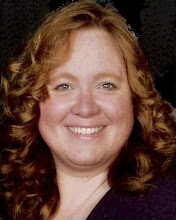There is something about money
By Nicole Warburton
Deseret News
Published: Saturday, Feb. 7, 2009
What is the right balance between faith and wealth?
Search the Bible and you will find hundreds of verses addressing the topic of wealth.
In fact, some researchers believe Christ preached more often about money and possessions than either heaven or hell, according to Lisa Keister, a professor of sociology at Duke University.
Consider the oft-quoted scripture in Matthew: "And again I say unto you, it is easier for a camel to go through the eye of a needle than for a rich man to enter into the kingdom of God."
Why then, do studies show people who attend religious services generally achieve more wealth than people who don't? Keister believes it's both a direct and indirect result of the emphasis religions place on issues such as marriage, childbearing, education and goal-setting.
Those are all big contributors to a person's lack or excess of wealth, she said.
So how does one reconcile the attainment of wealth with the teachings that wealth can be detrimental?
For some, it's a matter of interpreting the scriptures literally. Conservative Protestants as a whole tend to accumulate less wealth than Jews, Catholics or mainline Protestants, according to Keister.
Others believe it's a matter of attitude. The scripture in 1 Timothy does not say, "money is the root of all evil." It's the "love of money" that is the root of evil.
"We don't see wealth as good or bad," said Pastor Steve Goodier of Salt Lake City's Christ United Methodist Church. "It's what it does to you that makes a difference."
From his perspective, money can be a great tool, but the more tightly a person holds onto their wealth, the easier it is to focus on attainment and develop a "fearful" spiritual attitude.
He encourages people to try and seek balance with their money. It's important to save so as not to become dependant on others, but it must be done appropriately without hoarding, Pastor Goodier said.
Likewise, he believes a person must learn to spend appropriately, and also be generous in donating their money.
Within the Jewish faith tradition, Rabbi Tracee Rosen of Salt Lake City's Congregation Kol Ami said it is clear wealth is a gift from God and people have a responsibility to use it to benefit others. But giving must be done with balance so as not to indebt the giver, she said.
"We believe very strongly in individual choice," said Rabbi Rosen. "We charge human beings to behave in spiritually responsible ways regardless of financial status."
But what about a lack of money? Even debt can affect spirituality, according to researchers, educators and some clergy.
Ned Hill, a professor in the Marriott School of Management at Brigham Young University and also a former dean, said he believes debt can act as a constraint to correct moral behavior.
Consider the cases of Enron, WorldCom and other major companies that have failed as result of dishonesty and greed, he said. It was because of debt and pressure to perform.
"Studies show people who behave fraudulently generally have a high debt level," Hill said. "It brings worries into their lives and constrains behaviors. For example, if you have debts and you're working in a job and your boss says 'I want you to lie about something,' it can constrain your behavior from doing the right thing."
From Keister's perspective, religion and attitudes toward money are clearly connected.
"People draw on the tools they learn from religion to develop consistent strategies for dealing with problems and for making decisions such as savings, investment, and consumption decisions," she wrote in a recent study about wealth and religion.
It's just a matter of achieving the right balance, according to Colleen Gundreau with the Catholic Diocese of Salt Lake City.
"In no way can I say that I deserve or am worthy of anything God has given me, not my being, not my call to salvation, not my service in the community," she said in a statement. "But the essential question is not about my worthiness. The essential question is about my response: what do I do with the gifts that God has given me?"
Income diversity among religions
A recent study by the Pew Forum on Religion and Public Life showed there is great diversity in the income of various religious groups within the United States.
The study showed Hindu and Jewish traditions were the top wage-earning religions, with Orthodox, Buddhist and mainline Protestants coming next. The Church of Jesus Christ of Latter-day Saints and Catholics fell more toward the middle in terms of income while Muslims, Jehovah's Witness and "historically black Protestant churches" were at the bottom.
Rabbi Tracee Rosen with Congregation Kol Ami says a strong focus on education may explain why members of the Jewish faith were near the top.
"By and large, with young Jewish individuals, it's no longer enough to have a Bachelor's, they have to have a Master's or better," Rosen said.
________________________________________
E-mail: nwarburton@desnews.com
MormonTimes.com is produced by the Deseret News in Salt Lake City, Utah.
It is not an official publication of The Church of Jesus Christ of Latter-day Saints.
Copyright © 2009 Deseret News Publishing Company
Saturday, February 7, 2009
Subscribe to:
Post Comments (Atom)




No comments:
Post a Comment